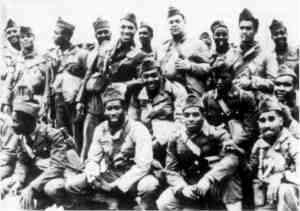One of the most severe tests of the Australian public in war was the presence of large numbers of United States troops in transit through Australia to various war fronts. These troops had three major impacts on Australian life.
One was to force the opening up of major cities to new cultural ideas - in particular, to bring entertainment to what were very closed-down cities at weekends. The Australian tradition was for cities to virtually close down on weekends. The presence of thousands of troops in many capital cities led city leaders to change that policy, and open hotels, theatres, clubs and restaurants for longer and more varied hours. This in turn had a substantial impact on the local economy, and introduced new tastes and fashions.
A second impact was the creation of considerable rivalry between Australian and American troops, and jealousy on the Australians' part. The American troops were better paid and with their access to consumer items in their PX and services like taxis, were able to live more lavishly and comfortably than the local Australians. This in turn led to some women preferring the Americans socially.
This climaxed in a number of clashes between Australian and American troops, in Melbourne, Perth and especially the infamous 'Battle of Brisbane' where hundreds of troops fought viciously in the city streets.
It is important, however, not to overemphasise these events. Many, perhaps even most Australian women, probably never met, let alone went out with, an American soldier. And the 'battles' between the troops involved only the tiniest minority of soldiers on each side.

Negro troops of the US Army in Australia. (From R. Lewis, A Nation at War)
A third impact was on Australia's indigenous people. Many black Americans were among the troops who passed through Australia. While blacks were discriminated against in the United States, they had far more civil rights than Australia's indigenous people. Many indigenous Australians met with these Americans, and were deeply influenced by the possibility for greater civic and economic equality that they seemed to represent.
To investigate this aspect of the Home Front experience by using evidence from the time, see Home Fronts at War, Ryebuck Media for ANZAC Day Commemoration Committee of Queensland.
More about the book HOME FRONTS AT WAR





